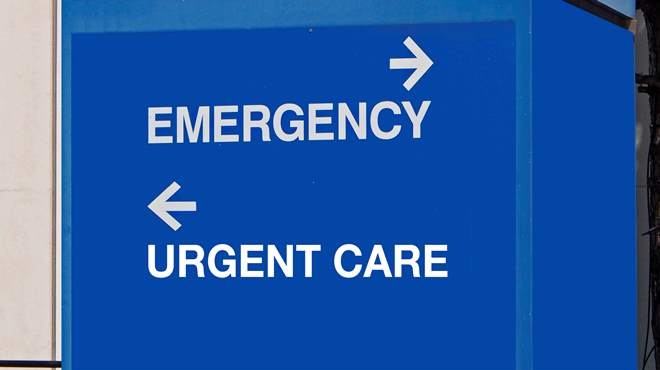The Advantages of Seeing Urgent Care for Minor Injuries and Illnesses
The Advantages of Seeing Urgent Care for Minor Injuries and Illnesses
Blog Article
Understanding the Relevance of Urgent Treatment Providers for Non-Life-Threatening Medical Issues
The relevance of urgent treatment services for non-life-threatening medical problems can not be overstated, particularly in today's health care landscape. These facilities provide a necessary alternative for clients seeking timely attention for problems that call for prompt treatment yet do not call for a see to the emergency clinic. By understanding the advantages of urgent care, such as reduced wait times and cost efficiency, one can better appreciate their role in patient health and wellness monitoring. Yet, the nuances of how to navigate these services successfully continue to be to be checked out, raising questions concerning their optimal usage.
What Is Urgent Care?
Immediate care refers to a category of clinical solutions developed to resolve non-life-threatening conditions that require prompt focus but do not require a check out to the emergency clinic. These facilities offer a bridge between main treatment and emergency situation solutions, supplying accessible medical care alternatives for people experiencing severe medical issues, such as minor cracks, sprains, infections, or extreme diseases that arise suddenly.

The range of services given by urgent treatment facilities can differ but normally includes treatment for usual ailments like colds, influenza, and allergic reactions, in addition to small injuries (urgent care). Additionally, several urgent treatment facilities use preventative services, such as vaccinations and physical examinations, to resolve wider wellness needs. By offering a hassle-free choice for urgent clinical problems, these facilities play a critical role in the healthcare continuum, ensuring that patients get proper care when they require it most
Advantages of Urgent Treatment Solutions
Many individuals find that making use of immediate treatment solutions offers significant benefits over standard emergency space sees or waiting for a primary care appointment. Urgent care centers normally have shorter wait durations, enabling clients to receive prompt medical focus when they require it most.
One more advantage is the prolonged hours of operation. Lots of immediate care centers are open nights and weekend breaks, accommodating individuals that might not have the ability to see their health care doctor throughout normal workplace hours. This adaptability makes it less complicated for clients to gain access to care at their benefit.
Additionally, immediate treatment solutions frequently supply an economical alternative to emergency clinic. When seeking treatment for minor disorders at urgent care centers rather than health center emergency divisions., individuals regularly encounter reduced co-pays and general costs - urgent care.
Finally, urgent care facilities are geared up to deal with a selection of non-life-threatening issues, offering a broad variety of solutions under one roofing. This comprehensive method not just streamlines the therapy process however additionally boosts patient contentment by providing prompt and effective care.
Typical Conditions Dealt With
What sorts of non-life-threatening problems can people anticipate to get therapy for at urgent care facilities? Immediate treatment centers are equipped to take care of a wide array of common medical issues that call for punctual focus yet do not pose an immediate risk to life. These centers commonly deal with problems such as small cracks, sprains, and pressures, offering essential treatment for injuries that happen throughout daily activities or sports.
Furthermore, patients frequently look for therapy for respiratory system infections, including colds, flu, and respiratory disease, where prompt intervention can reduce signs and avoid difficulties. Skin disease such as breakouts, insect attacks, and minor burns are additionally generally attended to, as prompt care can minimize discomfort and reduce the threat of infection.

Contrasting Urgent Care and Emergency Clinic

One significant difference waits times; urgent treatment facilities typically have shorter wait times contrasted to emergency clinic, which can be crowded with even more important cases. This efficiency allows patients to receive timely treatment for their conditions.
From an economic perspective, immediate care check outs have a tendency to be cheaper than emergency space sees. Insurance policy copays and out-of-pocket costs are commonly reduced at immediate treatment facilities, making them a more economical option for non-emergency scenarios.
How to Select an Urgent Care Center
Choosing the best urgent treatment facility can significantly improve the high quality of care received during a non-life-threatening medical concern. When selecting an immediate treatment center, several key factors need to be thought about.
First, evaluate the center's accreditation and licensing. Try to find centers that are recognized by recognized companies, as this indicates adherence to high quality requirements. Next off, examine the variety of services offered. Some immediate care centers concentrate on details areas, while others offer extensive take care of numerous clinical problems.
Additionally, consider the location and hours of procedure. A conveniently located facility with extended hours can be critical for timely care. It's likewise suggested to examine the center's delay times and patient reviews, which can supply understandings into the general patient experience.
Final Thought
Finally, immediate treatment services play a vital function in addressing non-life-threatening clinical concerns efficiently. By providing prompt focus for numerous problems, these facilities improve person access to timely care while minimizing the pressure on emergency clinic. The benefits of immediate treatment, consisting of prolonged hours and reduced expenses, make them a desirable option for individuals looking for punctual treatment. Inevitably, comprehending the relevance of immediate treatment facilities adds to boosted medical care monitoring and individual satisfaction.
 By using a hassle-free alternative for immediate clinical problems, these centers play a critical role in the healthcare continuum, ensuring that clients get proper treatment when they need it most.
By using a hassle-free alternative for immediate clinical problems, these centers play a critical role in the healthcare continuum, ensuring that clients get proper treatment when they need it most.Many individuals locate that utilizing immediate care services supplies substantial benefits over traditional emergency area visits or waiting for a main care appointment. Several click here for more info urgent treatment centers try this out are open evenings and weekends, suiting individuals that may not be able to see their main treatment medical professional throughout normal office hours. Urgent care facilities are developed to attend to non-life-threatening problems, such as minor fractures, infections, and illnesses, offering a convenient option to emergency areas for those in requirement of immediate care. Some urgent care facilities specialize in particular areas, while others provide detailed treatment for different clinical problems.
Report this page